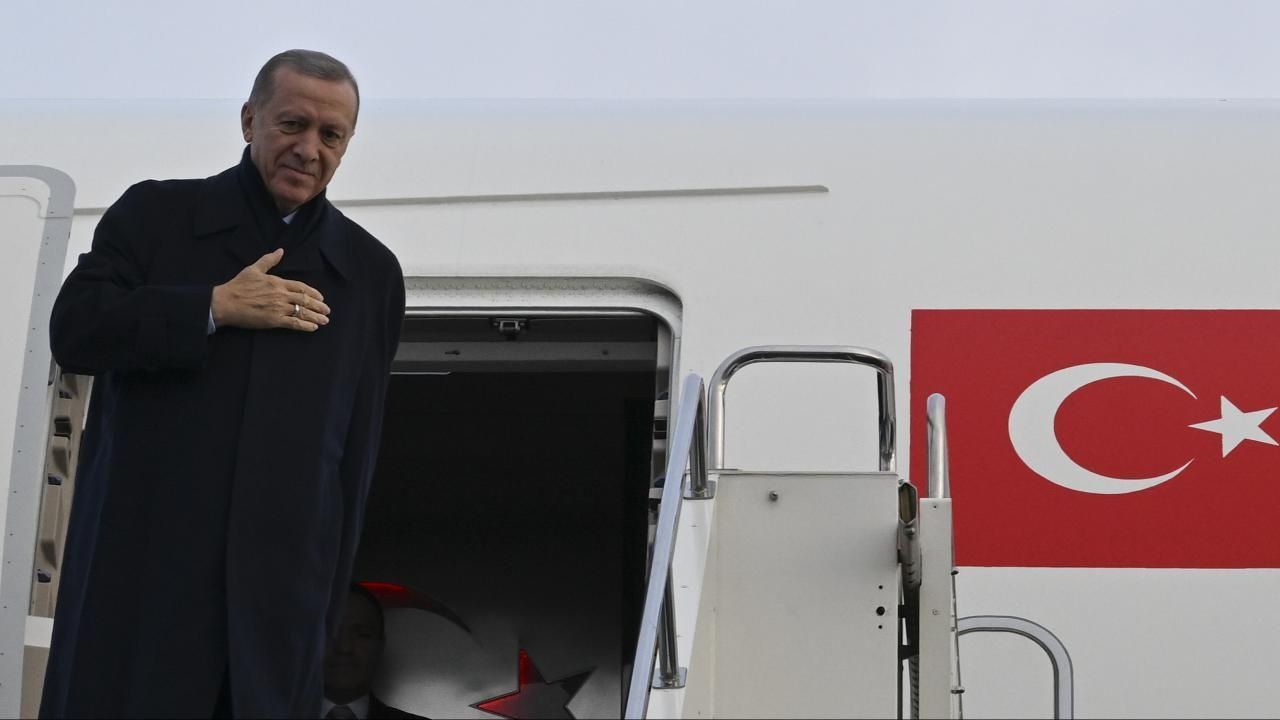Erdogan's Iraq visit amid critical terrorism tensions
President Erdogan is scheduled to visit Iraq in April. The visit comes after 12 years amid political tensions with the Iraqi government and his remarks on Türkiye's resolve for counterterrorism

Türkiye's Deputy Foreign Minister Ahmet Yildiz announced on Tuesday that President Recep Tayyip Erdogan is set to visit Iraq before the end of April.
"The visit is scheduled before April's end, with preparations under way," Yildiz stated, noting that Erdogan's last visit to Baghdad occurred in 2012 during his tenure as prime minister.
During his ongoing visit to Iraq, Yildiz mentioned plans for meetings with officials from the Iraqi Foreign Ministry to assess bilateral relations. "We are laying the groundwork for future ministerial meetings and the upcoming visit by our president," he explained.
Visit postponed several times
Sources speaking to the newspaper Asharq Al-Awsat in September claimed that the visit seemed unlikely due to the two sides failing to agree on resolving disagreements regarding oil, water exports, and security issues.
The discussions held by Foreign Minister Hakan Fidan in Baghdad in November were expected to pave the way for Erdogan's visit.
However, sources alleged that Fidan returned with impressions that might deter Erdogan from visiting Baghdad, saying, "Perhaps Türkiye felt that the necessary conditions for the success of the visit are not currently in place."
According to Iraqi parliament members, indirect messages from Ankara indicated that the increasing disagreements between the Baghdad and Erbil governments over the budget, salaries, and oil exports did not create a conducive political environment for President Erdogan's visit in 2023.
Other sources pointed out that the disagreement with Türkiye over oil exports, particularly regarding the Kurdistan Regional Government's (KRG) crude oil exports, remains unresolved within the framework of the lawsuit that halted exports to the Ceyhan port.
Iraq won its arbitration case against Türkiye in March after years of disagreement over oil exports from the KRG region.
The Turkish government demanded that Baghdad waive its estimated $2.6 billion in required compensation for Ankara as a condition for restarting oil exports.
Additionally, Ankara filed a lawsuit against Baghdad demanding compensation exceeding $900 million.
Iraqi sources highlighted the complexity of the issue, claiming that even after Fidan's visit to Baghdad, the two sides were unable to resolve the problem.
Furthermore, in September, airstrikes were carried out on Turkish military bases in the KRG region, resulting in serious damage to four Turkish military bases due to the attacks, followed by attacks in December, which resulted in several Turkish soldiers being killed.
What does President Erdogan aim to achieve?
Türkiye is aiming to expand its cross-border military campaign against the PKK terrorist group in Iraq.
Defense Minister Yasar Guler announced on Monday that Türkiye is in discussions with Iraq to jointly target the hideouts of the PKK.
Türkiye has established over 100 army outposts in the rugged border area of Iraq. This aligns with Erdogan's objective of creating a buffer zone along the borders of Iraq and Syria to counter the threat of Kurdish separatism in both nations.
"We are resolutely committed to establishing a security corridor 30-40 kilometers deep along our borders," Guler said on March 11. "By this summer, we aim to complete the circle to secure our border with Iraq and eliminate the terrorism issue."
Following attacks in December and January that resulted in the deaths of numerous Turkish soldiers in Iraq, which Türkiye attributed to the PKK, Erdogan pledged to intensify military actions against both the PKK and its Syrian offshoot, the YPG.
Source: Newsroom










